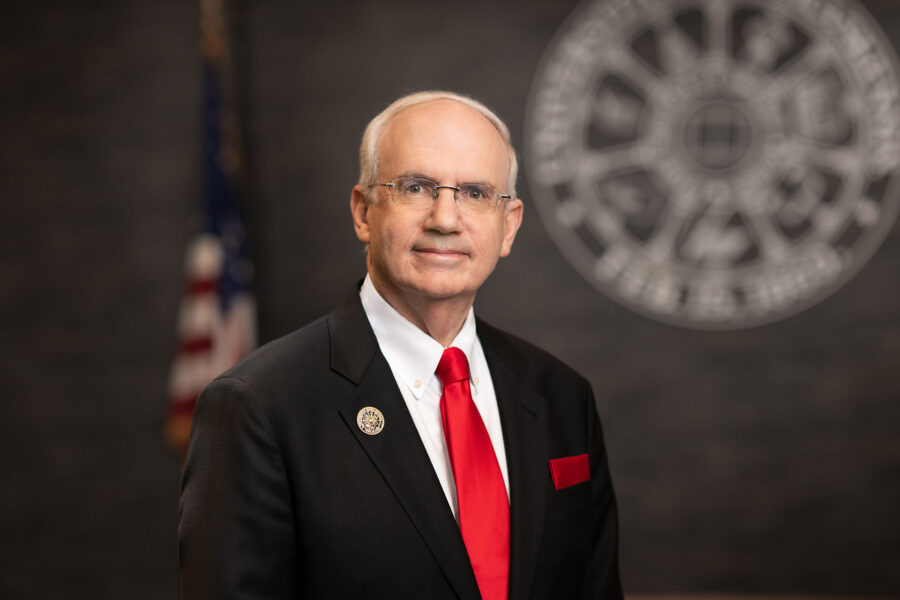The University of Nebraska System sent out this news release on Friday, Oct. 31: NU President Gold shares impact of unfunded tuition mandates.
University of Nebraska President Jeffrey P. Gold, MD, joined State Sen. Teresa Ibach and leaders from Nebraska’s public higher education institutions Friday, Oct. 31, in testifying before the Nebraska Legislature’s Appropriations Committee on the growing fiscal impact of unfunded, state-mandated tuition waivers and the need for sustainable solutions that preserve access and affordability for all students.
Senator Ibach, who introduced LR 261, opened the hearing by emphasizing the importance of understanding the long-term costs of unfunded tuition waivers on Nebraska’s colleges and universities. The interim study was designed to bring data and context to the discussion and to ensure the state continues to honor its commitments to veterans, first responders and other public servants in a fiscally responsible way.
“The University of Nebraska is proud to educate and support veterans, service members, first responders and their families,” said Dr. Gold. “The question is not whether we support our veterans, first responders, and their families — we do, unequivocally,” Dr. Gold told the committee. “The question is how we can continue to do so in a way that is financially sustainable, transparent and equitable to all current and future Nebraska students and families.”
The cost of unfunded tuition waivers at the university has grown rapidly:
- The university waived more than $8.8 million as a result of unfunded, legislatively mandated tuition waivers during the 2024–25 academic year, up nearly 36% since the 2023-24.
- These programs saw 219% cost growth in just six years, the equivalent of over 1% of the university’s total state-aided budget.
- The number of students participating in these waiver programs has more than doubled (+134%) in the same time period.
“Every dollar in remitted tuition is a dollar we must replace through higher tuition, reduced scholarships or internal cuts,” Dr. Gold said. “In essence, we are forced to make choices between groups of equally deserving Nebraskans.”
Dr. Gold also noted that nearly all other Big Ten sister states fund and administer these programs directly or reimburse universities.
“When a state determines that certain students should not pay tuition, most states also provide the funding to make institutions whole,” he said. “That helps ensure the programs can endure and continue to benefit those who serve.”
Like universities nationwide, the University of Nebraska faces rising costs, inflationary pressures and uncertainty in federal research support. All campuses — including the University of Nebraska-Lincoln — are currently implementing budget reductions, with UNL also addressing a structural deficit.
“These pressures require careful stewardship and partnership,” Dr. Gold said. “We remain committed to affordability, academic excellence and growing Nebraska’s workforce, but sustainable policy is the key to serving all Nebraskans.”
